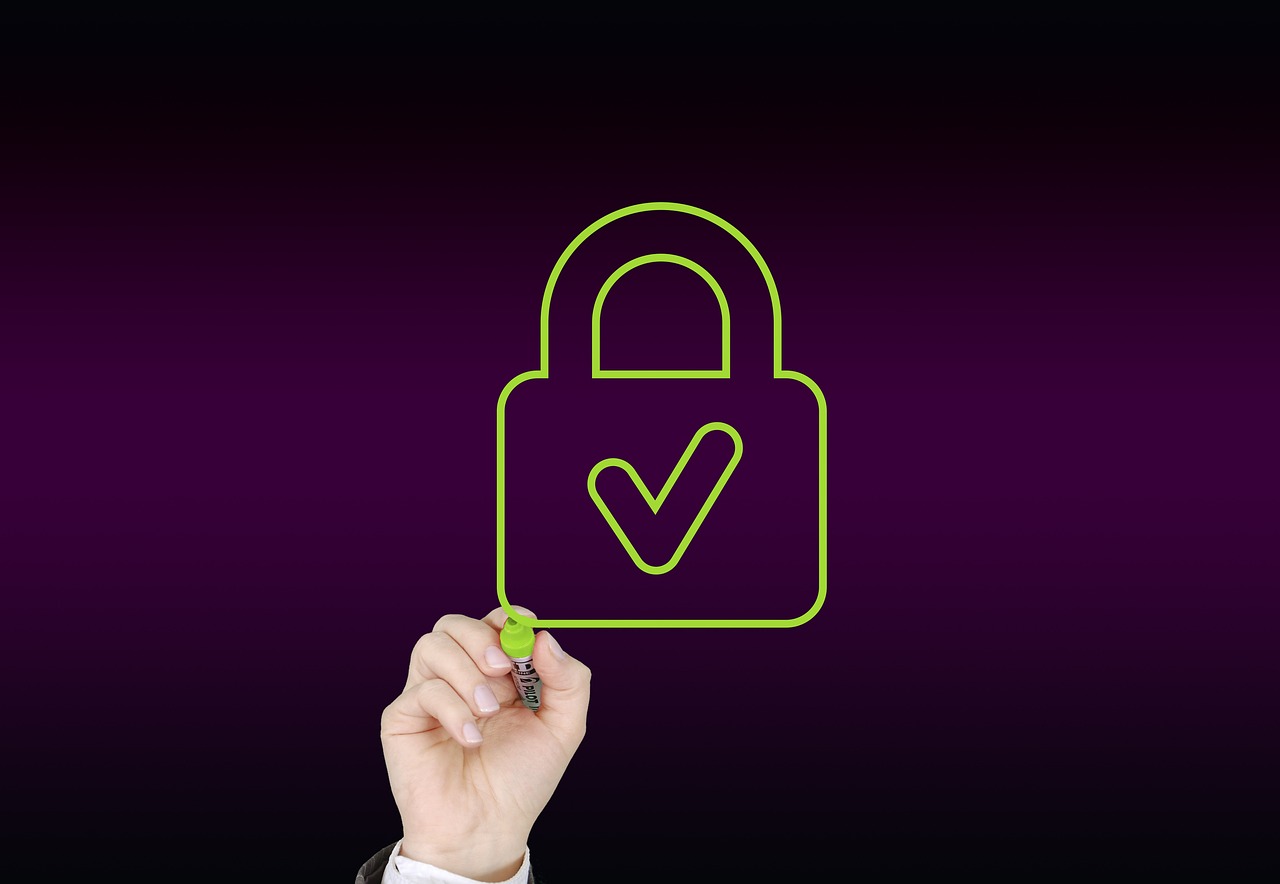How to Manage Your Passwords with a Password Manager
Managing passwords can be a daunting task, especially when you have numerous accounts across various platforms. However, with the help of a password manager, this process can become much more manageable and secure. A password manager is a tool designed to securely store and organize all your passwords in one encrypted location, accessible only through a master password.
One of the key benefits of using a password manager is the ability to generate strong and unique passwords for each of your accounts. This feature ensures that even if one of your passwords is compromised, the rest of your accounts remain secure. Additionally, password managers often offer multi-device syncing, allowing you to access your passwords across all your devices seamlessly.
Setting up a password manager is a straightforward process that involves creating an account, setting a master password, and installing browser extensions or mobile apps for easy access. Once set up, you can start organizing your passwords into categories and folders within the password manager, making it easier to locate specific credentials when needed.
When choosing a password manager, it is crucial to consider security features such as two-factor authentication and encryption protocols. These features add an extra layer of protection to your sensitive information, safeguarding it from potential cyber threats.
Regular password audits are also essential to ensure the security of your accounts. By periodically reviewing and updating your passwords, you can mitigate the risk of unauthorized access and keep your online accounts safe from potential breaches.

What is a Password Manager?
A Password Manager is a specialized software tool designed to securely store and manage your passwords for various online accounts. It acts as a digital vault where you can store all your login credentials in one centralized location, accessible through a master password or biometric authentication.
Think of a Password Manager as your personal keychain that holds the keys to all your online doors. Instead of trying to remember multiple complex passwords or resorting to using the same password for different accounts (which is a big security no-no), a Password Manager simplifies the process by storing and encrypting your passwords for safekeeping.

Benefits of Using a Password Manager
Using a password manager offers a plethora of benefits that can greatly enhance your online security and overall user experience. One of the key advantages is the ability to generate and store complex, unique passwords for each of your accounts. This feature eliminates the need to remember multiple passwords or resort to using simple and easily guessable ones. By entrusting your password management to a reliable tool, you can significantly reduce the risk of falling victim to cyber attacks and data breaches.
Furthermore, the convenience factor cannot be overlooked when it comes to utilizing a password manager. With all your passwords stored in one secure location, you no longer have to go through the hassle of trying to recall them or resetting them frequently. This streamlined approach not only saves time but also minimizes the chances of forgetting or losing access to your accounts.
Another notable benefit of password managers is their ability to provide an added layer of protection against various cyber threats. These tools often come equipped with features such as encryption, secure password sharing, and automatic password changing, which further fortify your online defenses. By leveraging the advanced security measures offered by password managers, you can safeguard your sensitive information and maintain peace of mind while navigating the digital landscape.

Secure Password Generation
When it comes to securing your online accounts, creating strong and unique passwords is crucial in preventing unauthorized access. A password manager can assist you in this task by generating complex passwords that are difficult to crack. These tools utilize secure algorithms to create passwords that combine letters, numbers, and special characters, making them highly resilient to hacking attempts.
By using a password manager for , you no longer have to rely on easily guessable passwords like "123456" or "password." Instead, each of your accounts can have a unique and robust password that adds an extra layer of protection to your sensitive information.
Imagine your passwords as the keys to your digital kingdom. Just as you wouldn't use the same key for your house, car, and office, you shouldn't use the same password for your email, bank account, and social media profiles. A password manager acts as your digital locksmith, creating and storing these unique keys for each of your online doors.

Multi-Device Syncing
When it comes to managing your passwords efficiently, one of the key features that a password manager offers is multi-device syncing. This functionality ensures that your passwords are synchronized across all your devices, allowing you to access them whenever and wherever you need them. Imagine seamlessly transitioning from your laptop to your smartphone without the hassle of manually inputting each password every time. With multi-device syncing, your passwords are securely stored in the cloud and updated in real-time, providing you with a seamless and convenient experience.

Setting Up Your Password Manager
Setting up your password manager is a crucial step in enhancing the security of your online accounts. To begin, you first need to choose a reliable password manager that suits your needs. Consider factors such as ease of use, compatibility with your devices, and robust security features. Once you have selected a password manager, the next step is to create a strong master password. This master password will be the key to accessing all your other passwords stored in the manager, so make sure it is unique and complex.
After setting up your master password, start by adding your existing account credentials to the password manager. This process may vary depending on the specific password manager you choose, but typically, you can manually enter the login details for each account or import them from a browser or another password manager.
Organizing your passwords within the password manager is essential for efficient management. Create categories or folders for different types of accounts, such as social media, banking, or email. This categorization will not only help you quickly locate specific passwords but also contribute to better organization and security.
Take advantage of the password generator feature offered by most password managers. When creating new accounts or updating passwords, use the password generator to automatically generate strong and unique passwords. Avoid using easily guessable passwords or reusing the same password across multiple accounts to minimize the risk of security breaches.
Enable multi-device syncing to ensure that your passwords are accessible across all your devices. This feature allows you to seamlessly access your passwords on your smartphone, tablet, or computer, providing convenience without compromising security.
Regularly review and update your passwords to maintain the security of your accounts. Schedule periodic password audits to identify any weak or outdated passwords that need to be changed. By staying proactive in managing your passwords, you can significantly reduce the risk of unauthorized access to your sensitive information.

Organizing Passwords and Categories
When it comes to managing your passwords effectively, organizing them into categories within your password manager can make a significant difference in your online security. By categorizing your passwords, you can easily locate specific credentials for different accounts, making the process of accessing and updating them more streamlined.
Imagine your passwords as a library with different sections for various genres of books. Just like you wouldn't mix up your mystery novels with your cookbooks, organizing your passwords into categories ensures that each set of credentials is neatly arranged and easily accessible when needed. This not only saves you time but also enhances the overall security of your accounts.
Within your password manager, you can create categories based on the type of accounts or level of sensitivity. For example, you may have separate categories for social media accounts, banking websites, email accounts, and work-related platforms. By structuring your passwords in this way, you can quickly navigate through your credentials without the risk of confusion or mix-ups.
Moreover, organizing passwords into categories allows you to apply specific security measures or settings to each group. For instance, you may choose to enable additional layers of protection for your financial accounts compared to your social media profiles. This tailored approach adds an extra layer of security to your sensitive information while maintaining accessibility to less critical accounts.
By establishing a systematic approach to organizing passwords and categories within your password manager, you can effectively manage and secure your online accounts with ease. Take the time to create a structured system that works best for you, ensuring that your digital assets are well-protected and easily accessible whenever you need them.

Security Features to Look For
When selecting a password manager, it is crucial to prioritize security features that can effectively safeguard your sensitive information. One of the key aspects to look for is two-factor authentication (2FA), which adds an extra layer of security by requiring not only a password but also a second form of verification, such as a fingerprint scan or a unique code sent to your mobile device. This feature significantly reduces the risk of unauthorized access even if your password is compromised.
In addition to 2FA, encryption protocols play a vital role in protecting your stored passwords from potential breaches. Opt for a password manager that employs end-to-end encryption, ensuring that your data is encrypted both during transmission and while at rest. This advanced encryption method makes it extremely challenging for cybercriminals to intercept and decipher your sensitive information.
Another essential security feature to consider is secure password sharing. Some password managers offer the capability to securely share passwords with trusted individuals or team members without compromising the confidentiality of the information. This feature is particularly beneficial for collaborative work environments where sharing access to certain accounts is necessary but must be done securely.
Moreover, password strength analysis is a valuable security feature that evaluates the complexity and strength of your existing passwords. A reliable password manager should provide insights and recommendations on improving weak passwords to enhance the overall security of your accounts. By regularly monitoring and upgrading your passwords based on these analyses, you can effectively fortify your online defenses against potential threats.

Regular Password Audits
Regular Password Audits are a crucial aspect of maintaining the security of your online accounts. Just like how you regularly check the locks on your doors to ensure your home's safety, conducting routine password audits is essential to safeguarding your digital presence. By regularly reviewing and updating your passwords, you can stay one step ahead of cyber threats and potential breaches.
During a password audit, you should assess the strength and complexity of your passwords. Look for any weak or duplicated passwords that could pose a security risk. It's like going through your wardrobe to weed out old, worn-out clothes that no longer serve their purpose. Eliminating outdated and vulnerable passwords is akin to decluttering your digital security, making room for stronger defenses.
Additionally, consider enabling features such as password expiration within your password manager. This functionality prompts you to change your passwords at regular intervals, enhancing your accounts' security. It's similar to changing the batteries in your smoke detectors annually to ensure they function correctly when needed. Regular password changes act as a preventive measure, reducing the likelihood of unauthorized access to your accounts.
Furthermore, keep an eye out for any suspicious account activity during your password audits. If you notice any unfamiliar logins or unusual behavior, take immediate action to secure your account. It's akin to noticing a strange car parked in your driveway; you wouldn't ignore it and hope for the best. Similarly, being vigilant about monitoring your accounts can help you detect and address potential security breaches promptly.
Remember, cyber threats are constantly evolving, and regular password audits are your proactive defense mechanism. By staying proactive and regularly reviewing your passwords, you can stay ahead of potential security risks and protect your valuable online information.
Frequently Asked Questions
- Can I trust a password manager to keep my passwords secure?
Yes, password managers use advanced encryption techniques to store your passwords securely. They provide a safe and convenient way to manage all your passwords without the risk of them being easily accessible to hackers.
- Are password managers compatible with all devices?
Most password managers offer multi-device syncing, allowing you to access your passwords across various platforms such as desktops, laptops, smartphones, and tablets. This ensures that your passwords are always available when you need them.
- How can I remember a master password for the password manager?
It is recommended to create a strong and unique master password for your password manager and commit it to memory. You can also use password hints or mnemonic devices to help you recall the master password easily.
- What happens if I forget my master password?
For security reasons, most password managers do not have a password recovery option for the master password. If you forget your master password, you may need to reset the password manager, which could result in losing access to all stored passwords.
- Are password managers vulnerable to cyber attacks?
While no system is completely immune to cyber threats, reputable password managers continuously update their security measures to protect against potential vulnerabilities. It is crucial to choose a trusted password manager and regularly update your software for enhanced security.



















